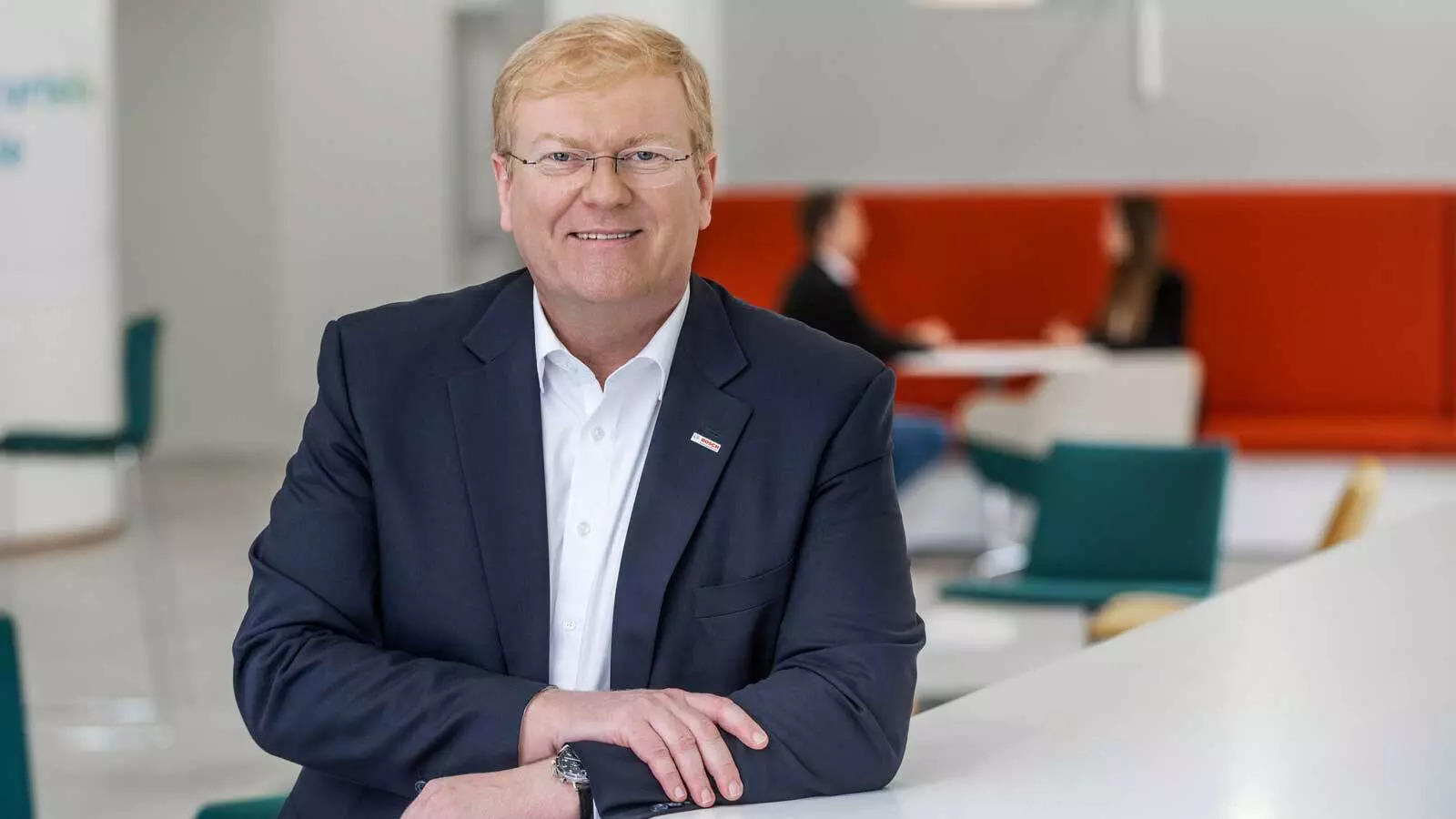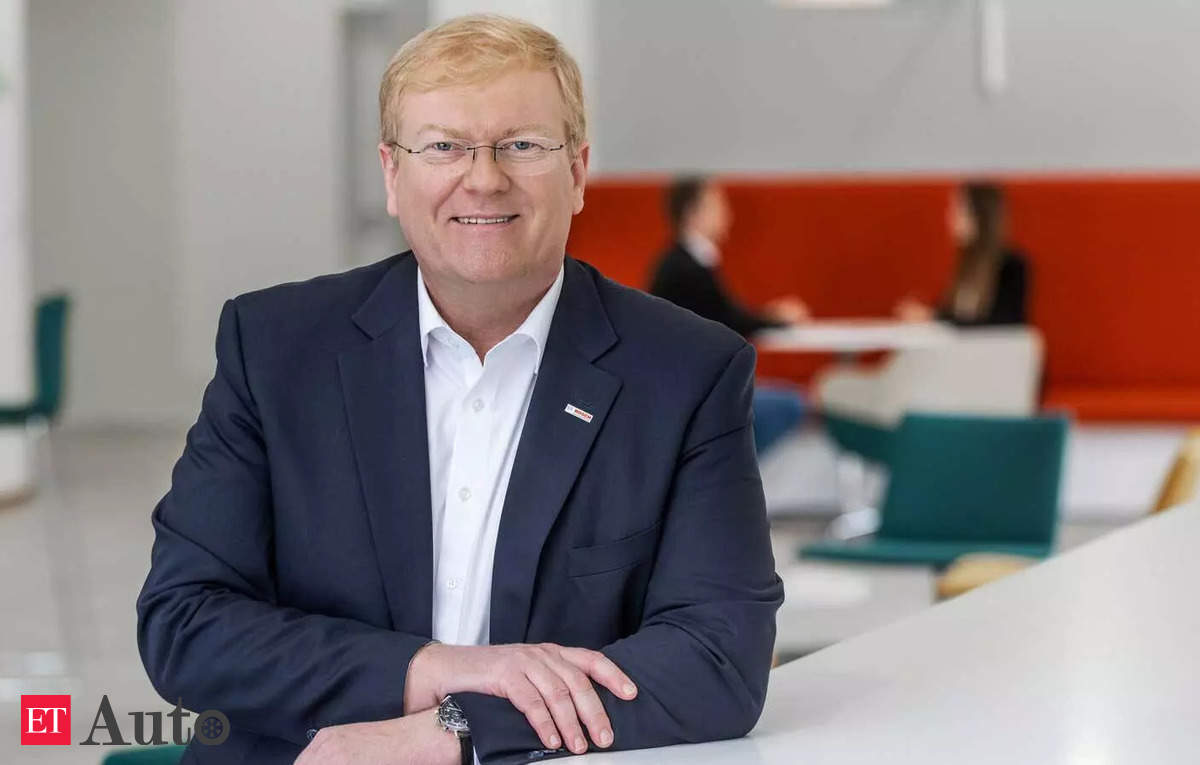
Stuttgart-Feuerbach, (Germany): The economy of the ‘Factory of the World’, China, is slowing down. Europe and the US are grappling with economic uncertainty. Amid such an economic scenario, India is attracting more bets for growth, Including from the EUR 88.2-billion technology and services company Bosch.
“I’m pretty optimistic that India will be the only region which probably, in the next two years, will have a substantial growth path,” says Dr Stefan Hartung, Chairman of Bosch.
Introduction of economic regulations, such as GST and interventions to incentivise industrial production, are the major enablers for growth. They also fuel the bullishness.
Bosch started its India journey in 1922. Still India isn’t among its top markets as the home market Germany or China. However, the German major has high stakes in the country. It is involved in many projects globally. That gives it a special role. That’s because it has contributions far beyond the sales of its subsidiary, Bosch India, annually. In 2022-23 the company clocked sales of EUR1,667 million (INR 14,929 crore).
Indian engineering and collaboration
The biggest stake in India for Bosch is in its Bengaluru- headquartered global engineering centre, Bosch Global Software Technologies (BGSW), which has grown from 650 associates in 2000, to over 36,000 in 2022, What was only a “Bangalore company” as Robert Bosch Engineering and Business Solutions earlier has gone global with subsidiaries in Mexico, and Vietnam, among other countries. “And we are also thinking about other locations,” Hartung said.
The large engineering base has expanded capabilities from being “purely only software” earlier to hardware design, functional design, and “hard core engineering services,” he said. A team of engineers in India is also involved in Bosch’s new focus area of Hydrogen technology. The technology supplier is targeting to earn EUR 5 billion from its Hydrogen tech solutions, by 2030.
2oo engineers from BGSW are part of the 3000 member team working on Bosch’s Hydrogen Technology.
Leveraging Indian frugal engineering and manpower
In the Indian automotive industry, Bosch is an established leading player. It will remain so by better leveraging India’s inherent frugal engineering to its advantage. “The tricky thing in India for us is that we want to do this ecological transformation and also accessibility of products,” Hartung said.
The efforts are to find solutions to ‘how can we make affordable electric cars? How can we make products which also work even if the infrastructure is not as developed?’ Bosch’s strategy is to use the best of both worlds – internal combustion technology expertise in the West, and the software engineering talent available in India, and make them work together.
“We involve all our people intensely in joint projects globally. Because, that is the game. With these new communication technologies, we have scrum work where people can do arithmetic work. And also some of the project leads are in India,” he said.
Cost is another factor that makes India attractive for industry players like Bosch. In some cases, getting experts from overseas can be “horribly expensive”. “The core work later has to be done in India with Indians. With a Smart Campus in Bengaluru, the idea is to offer young engineers a “cool” environment where they can pursue a rewarding career, Hartung said.
Bosch has to do whatever it can to attract and retain talent. That’s an area of increasingly severe competition among industry players. In his conversation, Hartung was very emphatic on talent though he was sure about Bosch’s business growth that “will happen anyway”.
Proper talent could also be the “decisive difference to China”. Hartung sees India’s growth peak still to be “15 to 20 years” later than China. “The talent stream is a super high advantage (for India). It needs to be mobilised, it needs to be put into the right work, it needs to be channeled so that it really develops,” he said.
In addition to the talent, what works for Indian engineers is that “they are international. They all speak English. They’re all interlinked. They’re fast. The only negative is that there is more room to go up? Yes, there is,” he said.
Non-automotive biz can do better in India
Bosch’s association with India started with a sales office in Kolkata (then Calcutta) in 1922. Its automotive components business, mainly spark plugs and oil filters, helped build the business. Bosch’s consumer goods and industrial technology businesses have a lot of catching up to do.
In that regard, there could be some new investments too. “We have to gain in India, it’s very important. That means we have to invest in India, and for that we have to be in India. This involves certain risks. Still no questions, we have to do it,” Hartung said.
In the mobility business he sees good scope in the safety area as India still leads the world in road accidents and fatalities.
More than EV tech
Hartung was talking to the Indian media delegates after formally starting commercial production of Bosch’s Hydrogen fuel cell power plant at its Feuerbach plant, near Stuttgart. His company plans to invest EUR 2.5 billion in Hydrogen technology by 2026. The India introduction of the first example of the tech, in H2ICE version, is planned for next year.
In line with the industry trend, Bosch’s bigger bet is on electrification. But it sees some risks in the electrification journey too. ”There is a risk to the electrical path. In some areas, you don’t have the infrastructure. There are limitations. The vehicles are still expensive, mainly because of the battery. And it will not get very cheap easily, because the materials are rare and depleting,” Hartung said.
Hydrogen is seen as the “long term shot”, mainly in the truck industry. Industry players are working on a twin Hydrogen technology approach – Hydrogen fuel cell, and Hydrogen internal combustion engine (H2ICE). In India, H2ICE is expected to take the lead as the technology requires little modification to the existing engine.









